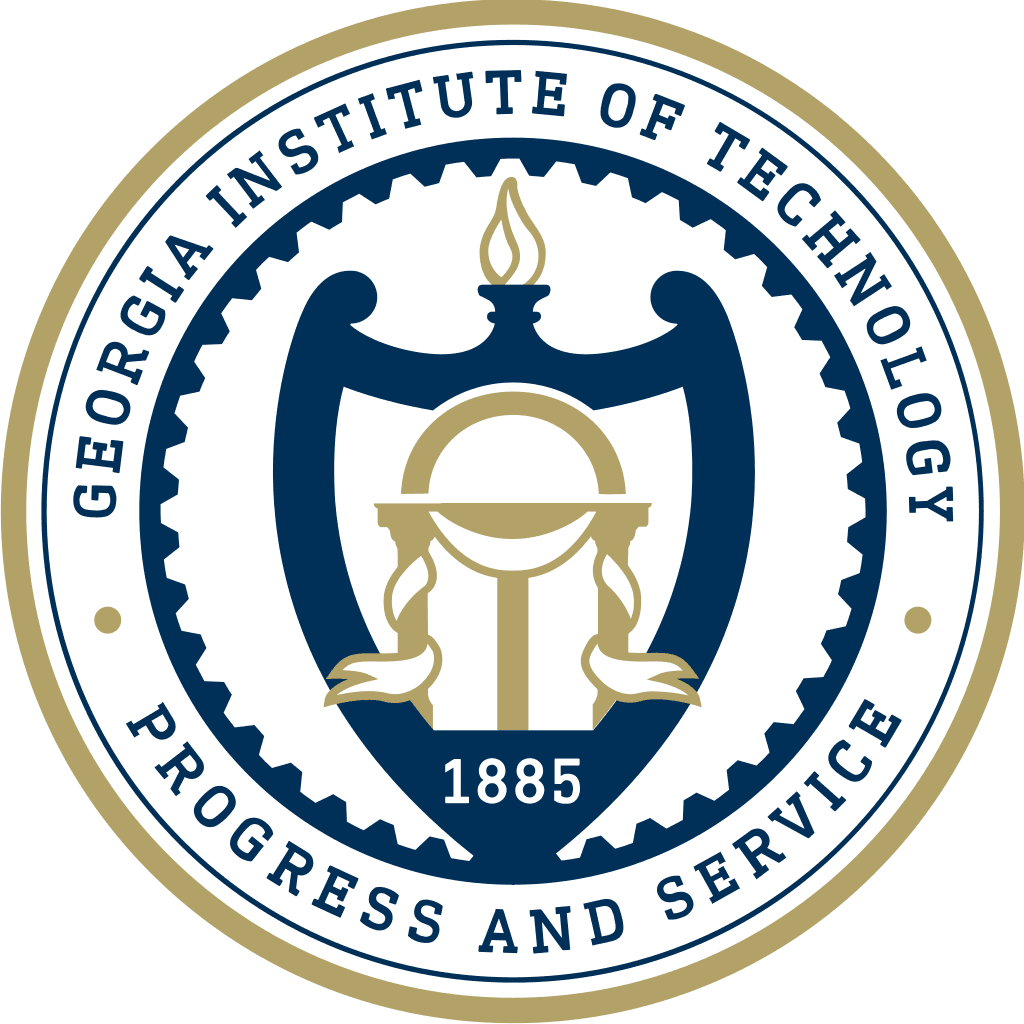
Georgia Institute of Technology

Summary
The Georgia Institute of Technology, also known as Georgia Tech, is a public research university located in Atlanta, Georgia, United States. Founded in 1885, it is one of the leading research universities in the United States, and is renowned for its programs in engineering, computer science, and the sciences. Georgia Tech is a member of the Association of American Universities (AAU) and has consistently ranked in the top 10 public universities in the United States. The university offers a range of undergraduate, graduate, and doctoral programs, and has a strong focus on technology and innovation. Georgia Tech has a diverse student body of over 32,000 students, representing all 50 states and more than 100 countries, and is recognized for its exceptional faculty, cutting-edge research, and entrepreneurial spirit.
History
The Georgia Institute of Technology, commonly known as Georgia Tech, was founded in 1885 as the Georgia School of Technology. The school was established as part of a plan by the Georgia General Assembly to create an industrial school that would help rebuild the state's economy after the Civil War.
Originally, the school was focused on providing training in agriculture, engineering, and mechanics, and its first class consisted of just 84 students. Over time, the school expanded its curriculum and became known for its programs in science, technology, and engineering.
In 1948, the school was renamed the Georgia Institute of Technology to reflect its focus on advanced research and innovation. Over the years, Georgia Tech has continued to grow and evolve, and has become one of the leading research universities in the United States.
Today, Georgia Tech offers a wide range of undergraduate, graduate, and doctoral programs, and has a strong focus on technology and innovation. The university is home to some of the world's leading researchers and scholars, and is recognized for its exceptional faculty and cutting-edge research.
Throughout its history, Georgia Tech has played an important role in driving innovation and economic growth in the state of Georgia and beyond. Its graduates have gone on to make significant contributions to fields such as engineering, science, business, and entrepreneurship, and the university continues to attract some of the brightest and most talented students from around the world.
Courses
The Georgia Institute of Technology, or Georgia Tech, offers a wide range of undergraduate, graduate, and doctoral programs across its six colleges: the College of Computing, the College of Design, the College of Engineering, the College of Sciences, the Ivan Allen College of Liberal Arts, and the Scheller College of Business.
Georgia Tech is particularly renowned for its programs in engineering, computer science, and the sciences. Some of its most popular undergraduate majors include computer science, mechanical engineering, aerospace engineering, electrical engineering, and industrial engineering.
At the graduate level, Georgia Tech offers a range of master's and doctoral programs in fields such as engineering, computer science, architecture, public policy, and business. The university is particularly well-known for its MBA program, which is consistently ranked among the top programs in the United States.
Georgia Tech is also home to several research centers and institutes, including the Georgia Tech Research Institute, the Parker H. Petit Institute for Bioengineering and Bioscience, and the Georgia Tech Institute for Electronics and Nanotechnology. These research centers and institutes provide students with unique opportunities to work on cutting-edge research projects and collaborate with leading researchers in their fields.
Global MBA rankings
The Georgia Institute of Technology's Scheller College of Business offers a highly regarded MBA program that consistently ranks among the top programs in the United States and around the world.
In the 2022 QS Global MBA Rankings, the Georgia Tech MBA program was ranked #34 in the United States and #76 in the world. The program was also ranked #6 in the world for value for money, reflecting its strong return on investment for students.
In addition to the QS rankings, the Georgia Tech MBA program has also been highly ranked by other leading publications and organizations. In the 2022 U.S. News & World Report Best Business Schools rankings, the program was ranked #27 in the United States, and in the Financial Times 2021 Global MBA Rankings, it was ranked #33 in the United States and #89 in the world.
The Georgia Tech MBA program is known for its strong focus on technology and innovation, and offers a variety of specializations, including finance, operations management, and business analytics. The program is designed to prepare students for leadership roles in a variety of industries, and provides them with the skills and knowledge needed to succeed in today's rapidly changing business environment.
Job integration rate
The Georgia Institute of Technology has a strong reputation for preparing students for successful careers in a variety of fields, and its graduates are highly sought after by employers both in the United States and around the world.
According to the university's Career Center, the overall job placement rate for Georgia Tech graduates is consistently above 90%. In addition, many graduates go on to pursue advanced degrees or start their own businesses.
The Career Center provides a range of services to help students and alumni achieve their career goals, including career counseling, job search assistance, and networking opportunities. The Center also hosts a number of career fairs and other events throughout the year, bringing together students and employers from a variety of industries.
In addition to the Career Center, Georgia Tech is home to a number of research centers and institutes that provide students with unique opportunities to gain hands-on experience and work on cutting-edge research projects. Many of these centers and institutes collaborate closely with industry partners, providing students with valuable connections and exposure to real-world challenges and opportunities.
General information
Explore the latest data on Business, Industry Leaders and Influencers, Organizations, Education, and Investors to stay informed and ahead.

